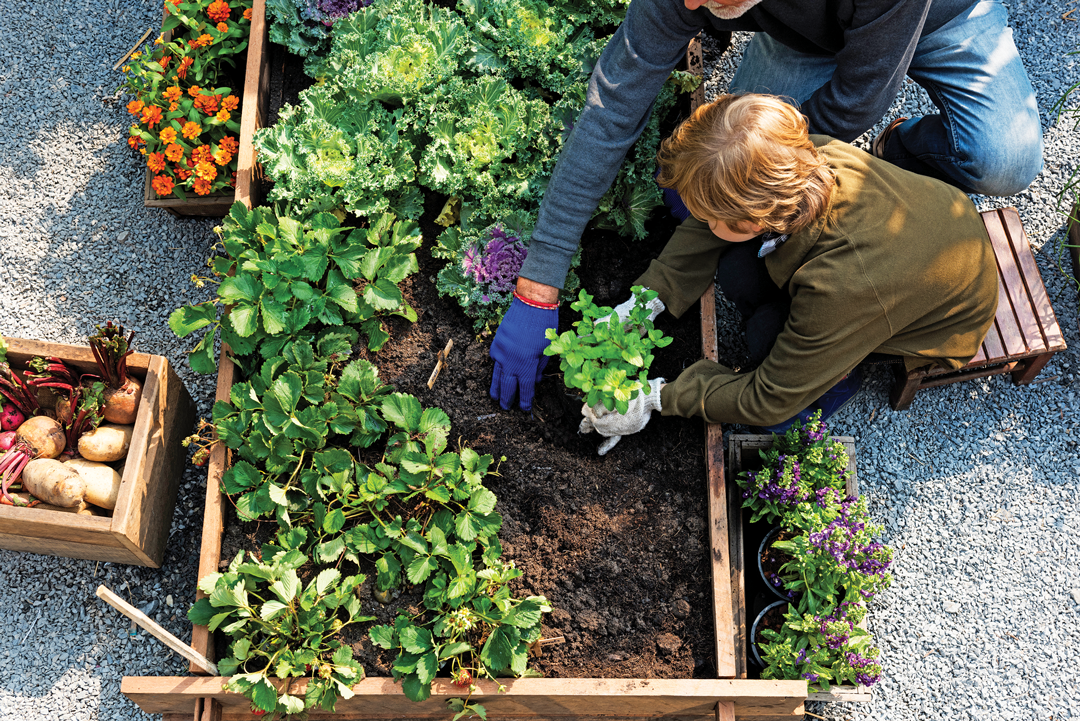The Most Effective Gardening Plants for Low-Maintenance and High Compensate
The Most Effective Gardening Plants for Low-Maintenance and High Compensate
Blog Article
Unlocking the Perks of Gardening: A Detailed Consider the Different Kinds and Their Effect On Well-Being
Checking out the complex advantages of horticulture exposes a spectrum of methods that considerably boost private health. As we take a look at these varied horticulture methods, it becomes obvious that their influence can resonate on individual, social, and environmental degrees, triggering a closer look at exactly how these links develop a cohesive story of alternative health.
Kinds Of Gardening

Blossom gardening, another preferred classification, emphasizes the aesthetic charm of cultivated blossoms. This type can improve landscapes and promote biodiversity by attracting useful pollinators. In a similar way, herb gardening involves expanding aromatic and culinary plants, adding both to food preparation and all-natural solutions.
Container gardening offers versatility, allowing people with restricted room to participate in gardening by making use of pots and planters. This approach is particularly prominent in urban setups. Elevated bed horticulture, on the other hand, involves producing raised plots that improve soil drain and access, making it much easier for garden enthusiasts to manage their plants.
Last but not least, community horticulture cultivates cooperation among people in common areas, advertising social interaction and collective responsibility. Each kind of horticulture serves unique functions and caters to various choices, making gardening a versatile activity that can be tailored to private needs and settings.
Mental Health And Wellness Advantages
Participating in various sorts of horticulture not just yields substantial rewards such as fresh produce and attractive blossoms yet also supplies considerable mental health and wellness advantages. Research indicates that gardening can be a powerful tool for reducing stress, anxiety, and anxiety. The act of having a tendency to plants and growing a yard cultivates a feeling of purpose and accomplishment, which can improve general psychological well-being.
Furthermore, horticulture motivates mindfulness, as it requires individuals to focus on today moment, whether it be planting seeds or supporting development. This mindfulness method can cause decreased rumination and enhanced mood security. The direct exposure to all-natural environments throughout horticulture has actually also been connected to boosted cognitive working and lowered feelings of exhaustion.
Social interaction plays a vital duty in mental health and wellness, and area gardening initiatives provide chances for people to connect with others, promoting a feeling of belonging. The common experience of horticulture can grow friendships and support networks, better bolstering psychological resilience.
Physical Wellness Benefits
Many people may not realize that gardening also provides significant physical health and wellness advantages. Taking part in gardening activities calls for a range of physical motions, including bending, lifting, excavating, and growing, which collectively contribute to better stamina, flexibility, and endurance. These activities can boost cardiovascular health by promoting an elevated heart price, therefore minimizing the danger of cardiovascular disease.
Moreover, horticulture can check out this site act as a moderate-intensity workout, helping people attain recommended exercise levels. Studies show that routine engagement in gardening can burn considerable calories-- around 200-400 calories per hour, depending upon the strength of the tasks done. Such calorie expense is beneficial for weight administration and overall metabolic health.
In addition, exposure to sunshine throughout gardening can facilitate the synthesis of vitamin D, which plays an essential duty in preserving bone wellness and supporting immune feature. The act of horticulture typically involves working with dirt, which has been connected to prospective mental and physical health and wellness benefits due to the presence of helpful microbes.
Social Links With Gardening
The communal elements of gardening foster significant social links among individuals. Area gardens, specifically, act as lively centers where individuals from diverse histories come together, cultivating not only plants yet additionally partnerships. These shared rooms urge partnership, permitting individuals to trade understanding, abilities, and resources, thus enhancing their horticulture experience and promoting a feeling of belonging.
Engagement in horticulture tasks frequently causes the development of friendships and support networks. Individuals regularly join for usual objectives, such as growing periods, harvest celebrations, or educational workshops, which strengthen interpersonal ties and create a feeling why not check here of area. Such interactions can ease sensations of seclusion and boost mental wellness, as people find companionship and sociability in common ventures.

Environmental Influence of Gardening
Horticulture significantly adds to ecological sustainability in numerous ways. Home gardens give essential environments for numerous species, including pollinators such as and butterflies, which are essential for environment health and wellness.

Furthermore, gardens play a crucial duty in water conservation. Well-planned landscapes, consisting of native plants and xeriscaping, reduce water use and avoid runoff, therefore securing local rivers from contamination.
Conclusion

Finally, horticulture acts as a complex activity that boosts wellness across numerous domains. The varied kinds of gardening-- consisting of vegetable, flower, natural herb, container, and raised bed-- contribute to psychological and physical health, foster social links, and promote environmental sustainability. By participating in gardening methods, people can experience improved high quality of life while also supporting wikipedia reference area bonds and ecological health and wellness. Inevitably, the holistic advantages of horticulture underscore its relevance as a vital aspect in enhancing general health.
Report this page